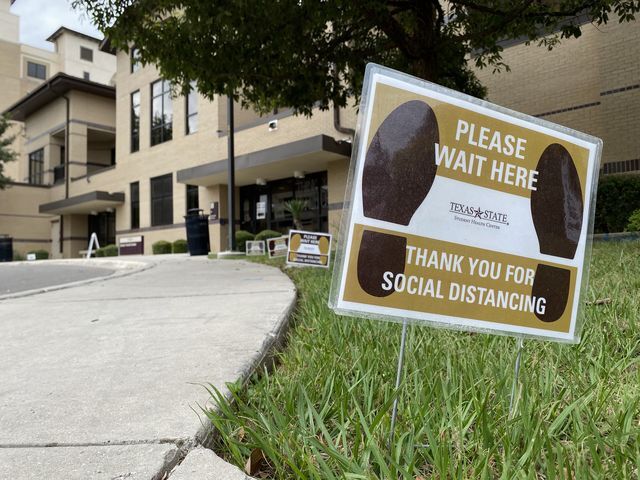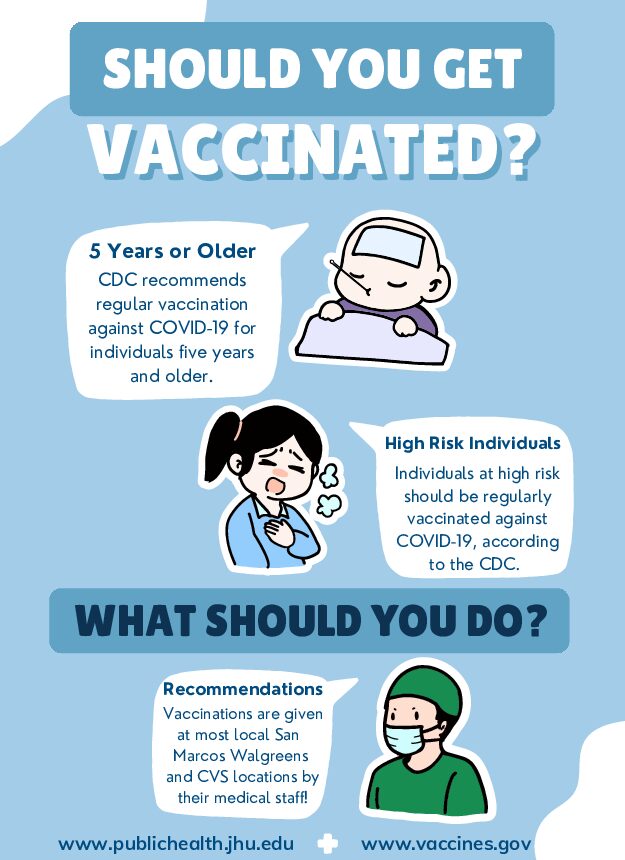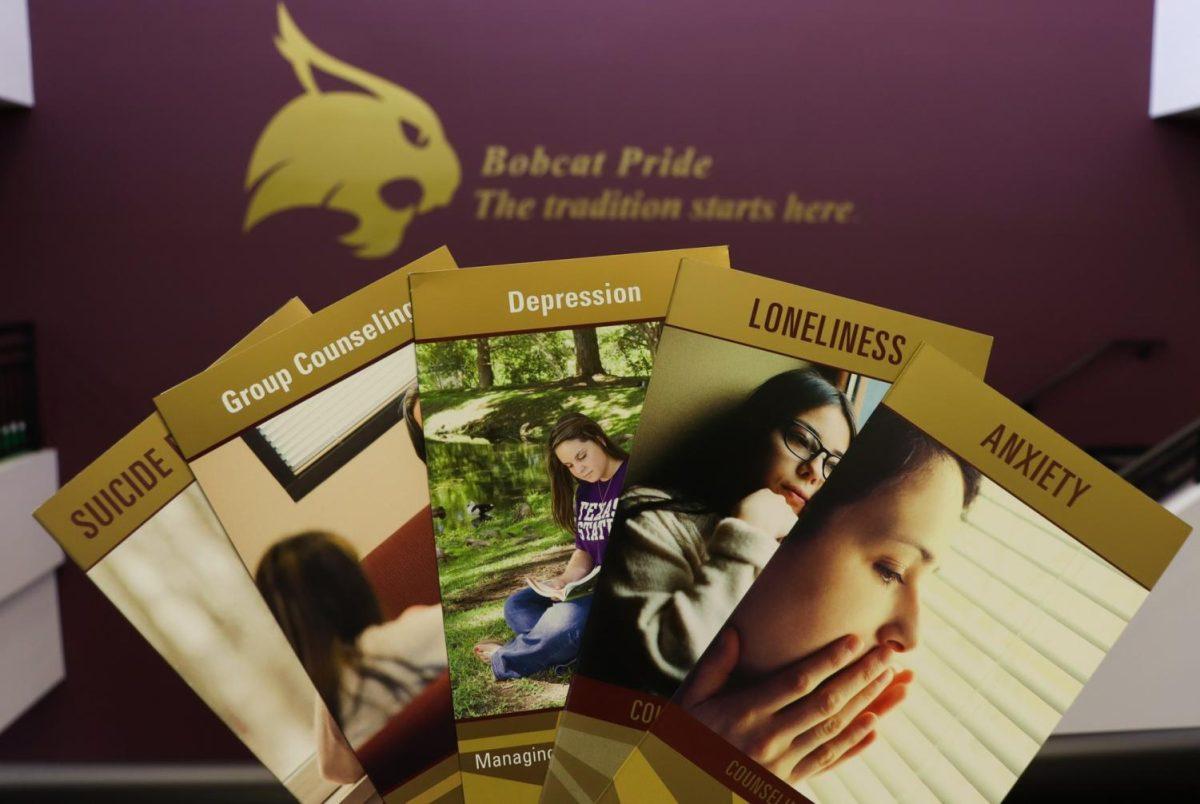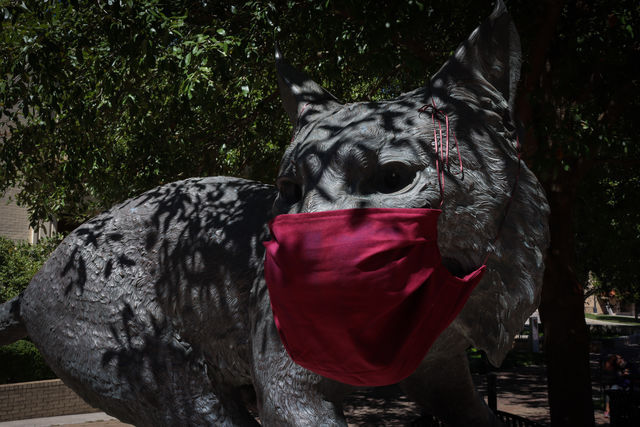Health officials are pushing students to get their flu shots for the upcoming 2020-2021 flu season, which could place a strain on Texas State’s Student Health Center resources should there be community spread.
The Student Health Center is offering flu shots and conducting outreach events encouraging students, faculty and staff to get vaccinated. Two outreaches were held at the San Marcos campus Sept. 30 and Oct. 7. A third was held at the Round Rock campus Oct. 8.
Outreach events are meant to bolster awareness of the flu, but students, faculty and staff do not have to attend one to get a flu shot; they can make an appointment with the Student Health Center by phone since walk-ins are not accepted.
Dr. Emilio Carranco, director of the Student Health Center, says conducting more outreach efforts in the future depends on the demand for flu shots. The Student Health Center will host a flu shot outreach 10:00 a.m. to 1:00 p.m. Oct. 26 at the Quad near the bobcat statue.
“I think that if we saw a greater demand this year, which is what I’m hoping we’ll see, then we would either add more outreach events or simply order more vaccines to allow more people to come in and get a flu shot when it’s convenient for them,” Carranco said.
Other Texas universities have similar programs in place. According to Sherry Bell of the University of Texas at Austin’s University Health Services/Counseling and Mental Health Center Public Information Team, the school is holding flu shot drives Monday through Friday until Oct. 23, free of charge for students, faculty and staff. Like Texas State, UT Austin requires those getting a flu shot to register in advance, a change from the usual procedure made necessary by COVID-19.
“[Normally] we can immunize 1,000 people in four hours,” Bell said. “You obviously can’t have 1,000 people being immunized in four hours when you’re charged with social distancing and mask-wearing and those kinds of things.”
The flu has caused between 12,000-61,000 deaths each year since 2010, according to the Centers for Disease Control and Prevention estimates; however, Carranco says the greatest danger is the possibility of excessive flu cases taking away medical resources from COVID-19 patients.
“We’re clearly not on the other side of this pandemic yet, so that immediately tells you how much more serious [COVID-19] is than the flu,” Carranco said. “But the flu can also result in very serious consequences, so what I think we all want to avoid is a situation this fall where we have a bad flu season.”
Since both are viral infections that can affect the lungs, symptoms of the flu and COVID-19 can be similar. Hays County Epidemiologist Eric Schneider says this similarity makes it difficult to differentiate the two without testing. To counteract this, Schneider says many clinics are testing for both when patients get tested.
“That way, we’ll know for sure whether it’s flu or COVID when they first show up with signs and symptoms,” Schneider said. “But it’ll be difficult because if someone chooses not to go to the doctor, thinking that it’s the flu, we have to treat it like it’s potential COVID, and they’re supposed to quarantine at home.”
While the clash of flu season and the COVID-19 pandemic could bring a number of dangers and complications, Schneider says health and safety protocols already in place to prevent COVID-19 will simultaneously work to fight the flu, including social distancing guidelines, wearing masks in public and hand washing.
According to San Marcos Mayor Jane Hughson’s July 10 public health advisory, anyone who violates the city’s requirement to “wear a face covering over the nose and mouth when inside a commercial entity or other building or space open to the public, or when in an outdoor space, whenever it is not feasible to maintain six feet of social distancing from another person not in the same household” is subject to a fine not to exceed $250.
These types of measures cannot prevent all cases of the flu, just as they are not guaranteed safeguards against COVID-19. For this reason, Schneider says it remains important that everyone gets a flu shot.
“One little weapon that we have with flu that we don’t have with COVID-19 yet is that there is a vaccine for the flu,” Schneider said. “We highly recommend anybody and everybody go get the flu vaccine as soon as it’s available because that will help minimize the number of people that contract the flu.”
Texas State students, faculty and staff can make a flu shot appointment at the Student Health Center by calling 512-245-2161. The flu shot is covered by most in-network insurance plans and is $25 for uninsured patients or those with out-of-network insurance.
Categories:
Student Health Center prepares for flu season amid COVID-19
Carson Ganong, News Reporter
October 20, 2020
Social distancing signs outline the sidewalk to the Student Health Center, Thursday, Oct. 8, 2020, on Texas State campus. As the flu season approaches, the center has held multiple outreach events to give students, faculty and staff the opportunity to receive a flu shot on campus.
0
Donate to The University Star
Your donation will support the student journalists of Texas State University. Your contribution will allow us to purchase equipment and cover our annual website hosting costs.
More to Discover





















